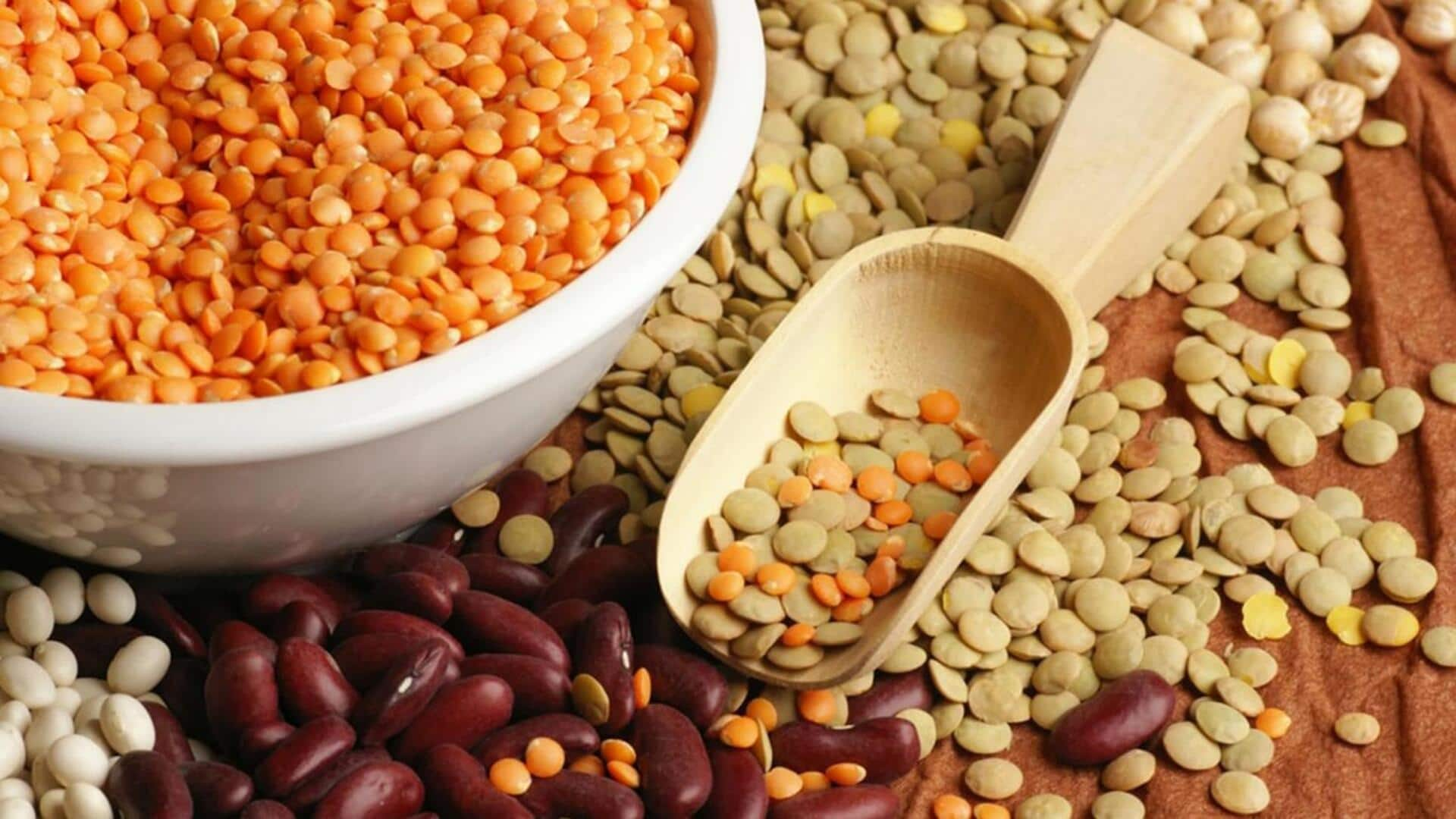
Lentils vs. chickpeas: A comprehensive nutritional comparison
What's the story
In the realm of nutritious foods, two legumes shine brightly: lentils and chickpeas.
Both are foundational elements in many global cuisines and are praised for their high protein content and plethora of beneficial nutrients.
This article provides a comprehensive comparison between these two legume powerhouses.
We'll examine their protein content, nutritional values, versatility in the kitchen, and overall health benefits.
Protein
Protein content comparison
Both lentils and chickpeas pack a significant protein punch.
A cup of cooked lentils boasts a hefty 18 grams of protein, while an equivalent serving of cooked chickpeas holds its own with 15 grams.
Either way, you're getting a plant-powered protein boost, making these legumes a top choice for vegetarians and vegans.
Nutrition
Nutritional value face-off
Beyond protein, both lentils and chickpeas are rich in fiber, vitamins, and minerals.
Lentils hold a slight advantage in dietary fiber, providing up to 40% more than chickpeas. They also contain marginally more iron and folate.
Chickpeas surpass lentils in magnesium and potassium content.
While both legumes are low in fat, they are excellent sources of heart-healthy polyunsaturated fats.
Cooking
Culinary versatility explored
Lentils, thanks to their smaller size, cook super quickly (no soaking needed!) and are perfect for soups, stews, and salads. Basically, if you're in a hurry, reach for the lentils.
Chickpeas, on the other hand, require that pesky soaking step but reward you with a deliciously firm texture that's perfect for roasting, blending into creamy hummus, or even using as a meat substitute in everything from curries to salads.
Health
Health benefits beyond protein
Both lentils and chickpeas benefit the heart by reducing cholesterol levels due to their high fiber content.
They also aid in regulating blood sugar levels, making them beneficial for people with diabetes.
Both legumes are rich in essential vitamins like B vitamins which are good for brain health. Plus, antioxidants combat harmful oxidative stress.
Tips
Tips for incorporating more legumes into your diet
To incorporate more of these healthy legumes into your diet, consider adding cooked lentils or chickpeas to salads for a protein boost; use them as bases for vegetarian burgers; or blend them into soups for a naturally creamy texture without the need for cream or flour.
And, don't forget that playing around with spices can significantly elevate their taste.